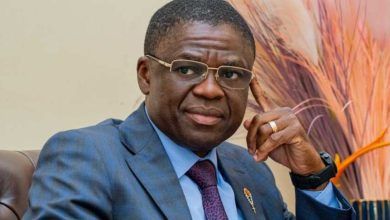
Nigeria’s public debt stock ballooned by ₦57.3 trillion within the first 18 months of President Bola Tinubu’s administration, reflecting a 65.6% increase as the country battles fiscal deficits, a volatile exchange rate, and heavy domestic borrowing.
According to data from the Debt Management Office (DMO), total public debt rose from ₦87.38 trillion at the end of June 2023 to ₦144.67 trillion by December 2024.
When President Tinubu assumed office on May 29, 2023, Nigeria already carried a substantial debt burden, including a ₦22.7 trillion Ways and Means balance owed to the Central Bank of Nigeria. However, in less than two years, the debt profile has sharply expanded largely due to a depreciating naira and a surge in both domestic and foreign obligations.
Foreign Debt Nearly Doubles in Naira Terms
External debt more than doubled in naira terms during the period, jumping from ₦33.25 trillion in June 2023 to ₦70.29 trillion by December 2024. In contrast, domestic debt increased from ₦54.13 trillion to ₦74.38 trillion.
However, in dollar terms, Nigeria’s total debt actually dropped from $113.42 billion to $94.23 billion due to the naira’s collapse. The exchange rate weakened from ₦770.38/$1 to ₦1,535/$1, inflating the naira equivalent of foreign borrowings without significantly changing the dollar amount.
The Federal Government’s external debt soared from ₦29.9 trillion to ₦62.92 trillion, while states and the FCT saw theirs rise from ₦3.35 trillion to ₦7.37 trillion over the same period.
Interestingly, domestic debt among subnational entities declined, falling from ₦5.82 trillion to ₦3.97 trillion an indication of tighter borrowing conditions and costlier access to credit.
Federal Government Now Holds Over 90% of National Debt
The Federal Government remains the primary borrower, with its combined debt obligations (domestic and external) rising from ₦78.21 trillion to ₦133.33 trillion. This means it holds over 90% of Nigeria’s total public debt.
One major driver of domestic debt expansion was the restructuring of the ₦22.7 trillion Ways and Means advances from the CBN into tradable bonds approved by the National Assembly and the presidency in May 2023. This alone accounted for about 32% of the ₦22.1 trillion growth in domestic debt since Tinubu took office.
FGN Bonds remain the dominant debt instrument, standing at ₦55.44 trillion by December 2024. Treasury Bills surged nearly threefold to ₦12.35 trillion, pointing to the government’s increasing reliance on short-term borrowing. Other instruments, including Sukuk and Promissory Notes, also saw significant growth.
Dollar-Denominated Debt Instruments Gaining Popularity
A notable shift is the growing presence of dollar-denominated debt in Nigeria’s domestic market. For instance, a $917.41 million US dollar bond issued in September 2024 and converted at the official rate of ₦1,535/$1, has been added to domestic obligations. Similar treatment applied to $727.24 million in foreign-currency promissory notes owed to local creditors.
This strategy may appeal to foreign investors and diaspora Nigerians, but it also signals rising external exposure within the domestic debt mix.
External Debt: Slow Growth in Dollars, Fast in Naira
Nigeria’s external debt rose modestly from $43.16 billion to $45.78 billion in dollar terms (6.1% growth). However, in naira terms, the impact was much larger, with the debt more than doubling due to currency depreciation.
Multilateral lenders remain the main creditors. Loans from the International Development Association (IDA) of the World Bank grew from $14.03 billion to $16.56 billion. The African Development Bank’s exposure also rose to $2.10 billion.
The International Monetary Fund’s exposure declined from $3.26 billion to $800.23 million after Nigeria repaid the $3.4 billion emergency COVID-19 loan by April 30, 2025.
Eurobond obligations increased by $1.7 billion to $17.32 billion, making up 37.8% of external debt. Commercial borrowing remains an expensive but critical funding tool.
New $500m World Bank Loan on the Horizon
Amid the growing debt load, the Federal Government is seeking a fresh $500 million loan from the World Bank to support agricultural reforms and job creation under a new programme titled “Nigeria Sustainable Agricultural Value-Chains for Growth.”
According to a Project Information Document released on May 1, 2025, the loan will fund interventions in rice, cocoa, cashew, and cassava value chains, aiming to boost productivity, market access, and infrastructure.
It will also support irrigation projects, climate-smart agriculture, land reform, and capacity building for cooperatives and agribusinesses. States that meet implementation benchmarks will receive greater funding shares in a competitive, performance-based framework.
This facility, if approved by December 2025, would align with the government’s push to diversify the economy and reduce food insecurity an issue affecting over 31 million Nigerians as of 2024.




